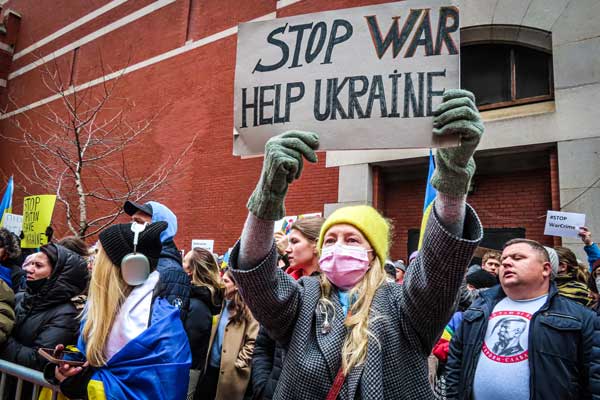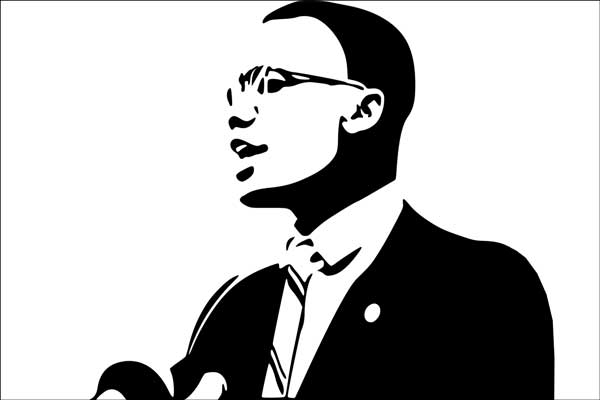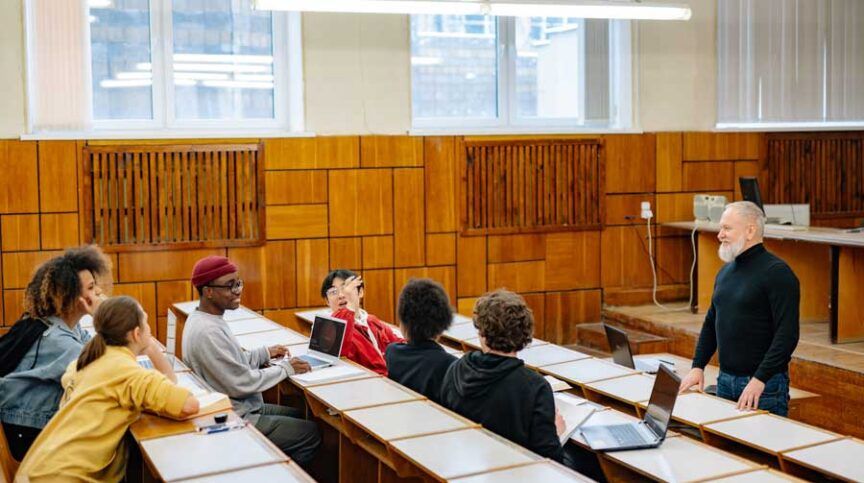After President Vladimir Putin of Russia began what he called a “special military operation” on February 24 to “demilitarize and denazify Ukraine,” nonstop media coverage of the conflict immediately began. A huge outcry from the international community was heard about the atrocities taking place in Ukraine. Pictures and videos of Ukrainians flooding out of the country were being broadcast on all mainstream media outlets. Reports coming out of Ukraine revealed a humanitarian crisis unfolding in front of our eyes. According to the U.N. High Commissioner for Human Rights, by March 20, roughly 900 civilians had been killed and 1,459 wounded. And, according to the U.N. High Commissioner for Refugees, 10 million Ukrainians have fled their homes.
A number of journalists covering the war in Ukraine compared it to other conflicts that have taken place in recent years. One example is Charlie D’Agata, a CBS News correspondent, who stated, “But this isn’t a place, will all due respect, like Iraq or Afghanistan, that has seen conflict raging for decades. You know this is a relatively civilized, relatively European — I have to choose those words carefully too — a city where you wouldn’t expect that or hope that it’s going to happen.” His statement went viral, and he was widely condemned. A day later he apologized for his words. Comparing the crisis occurring in Ukraine to the conflicts and wars in the Middle East in this way effectively dehumanizes the lives lost in the Middle East and normalizes stereotypes of a “civilized” European people versus a backward and conflict-ridden Middle Eastern people.
Another statement came from Daniel Hannan, a former member of the European Parliament. In an article in the British newspaper, The Telegraph, he wrote about the Ukrainian refugees: “They seem so like us. That is what makes it so shocking. War is no longer something visited upon impoverished and remote populations. It can happen to anyone.” As a result, he faced backlash including a statement from Mahdis Keshavarz, a board member with the Arab and Middle Eastern Journalists Association. Keshavarz stated, “… Have journalists become so desensitized to the suffering of different people of color, specifically people that are in war zones, that we’re no longer seeing on the same level playing field?”
Media Coverage Using Racist Depictions and Language
Statements about the Ukrainian refugees have revealed tribal, and even racist, sentiments.
In an interview with BFM TV, Eric Zemmour, a presidential candidate in France said that “Everyone knows that Arab or Muslim immigration is too distant from us and it’s more difficult to acculturate and assimilate them. So effectively we are closer to European Christians.” His statement perpetuates intolerance towards people of different origins. In another article published on the European Commission, an official website of the European Union, Bulgaria’s prime minister, Kiril Petkov, said, “These are not the refugees we are used to. These are Europeans, intelligent, educated people, some of them are programmers… This is not the usual refugee wave of people with an unclear past. None of the European countries are worried about them.” His statement directly highlights the different perception of the Ukrainian refugees as opposed to refugees from the Middle East and Africa.
The role the media plays in perpetuating racism and bigotry is complex, but the bottom line is that the media has significant influence in constructing narratives and influencing how people think about these issues, especially in politics. Media, in many nations, act as mouthpieces for government policy and political positioning. But by influencing public opinion, the media also influences politicians who too often act according to public opinion polls rather than according to principle and ethical considerations.
A Double Standard Toward Refugees Continues
In 2018, leaders of Hungary, Slovakia, Poland, and the Czech Republic decided not to attend the EU summit on migration. These nations also later rejected proposals to allow refugees into their countries. Now with the Ukrainian conflict, many Central European countries are taking in thousands of refugees, showing their “selective empathy” for European refugees. This is in very stark contrast to the position taken toward those fleeing Syria in the past decade. A 2013 article posted on the UNHCR (U.N. Refugee Agency) website states that Bulgaria turned down Syrian refugees at the border and deployed police officers to guard the border, as well as “introducing barriers, like fences or other deterrents.” Another article published by the European Commission in 2017, shows how a Shadow Report from 2015-2016 by the European Network Against Racism (ENAR) showcases the racism many Africans faced. According to the report they were framed as “economic” or “illegal” migrants. As a result, many policies advocating or enforcing anti-migrant viewpoints and political positions were very widespread.
Being raised in a world where information is at the tip of our fingers, and a multitude of viewpoints is available online, it’s sometimes hard to distinguish between accurate information, misinformation, or propaganda. Implicit biases do exist, and we should all become more aware of these biases, in others as well as in ourselves. Journalists should hold themselves to the highest standards of truth-telling and accountability for their words, especially when they are reporting about human tragedy and loss in geopolitical conflicts and war.





